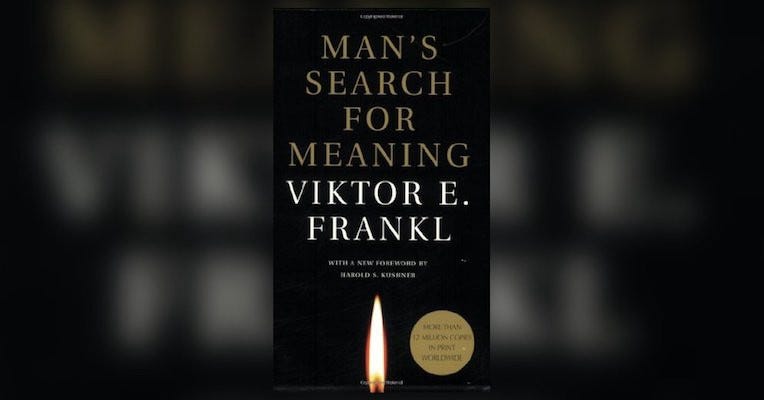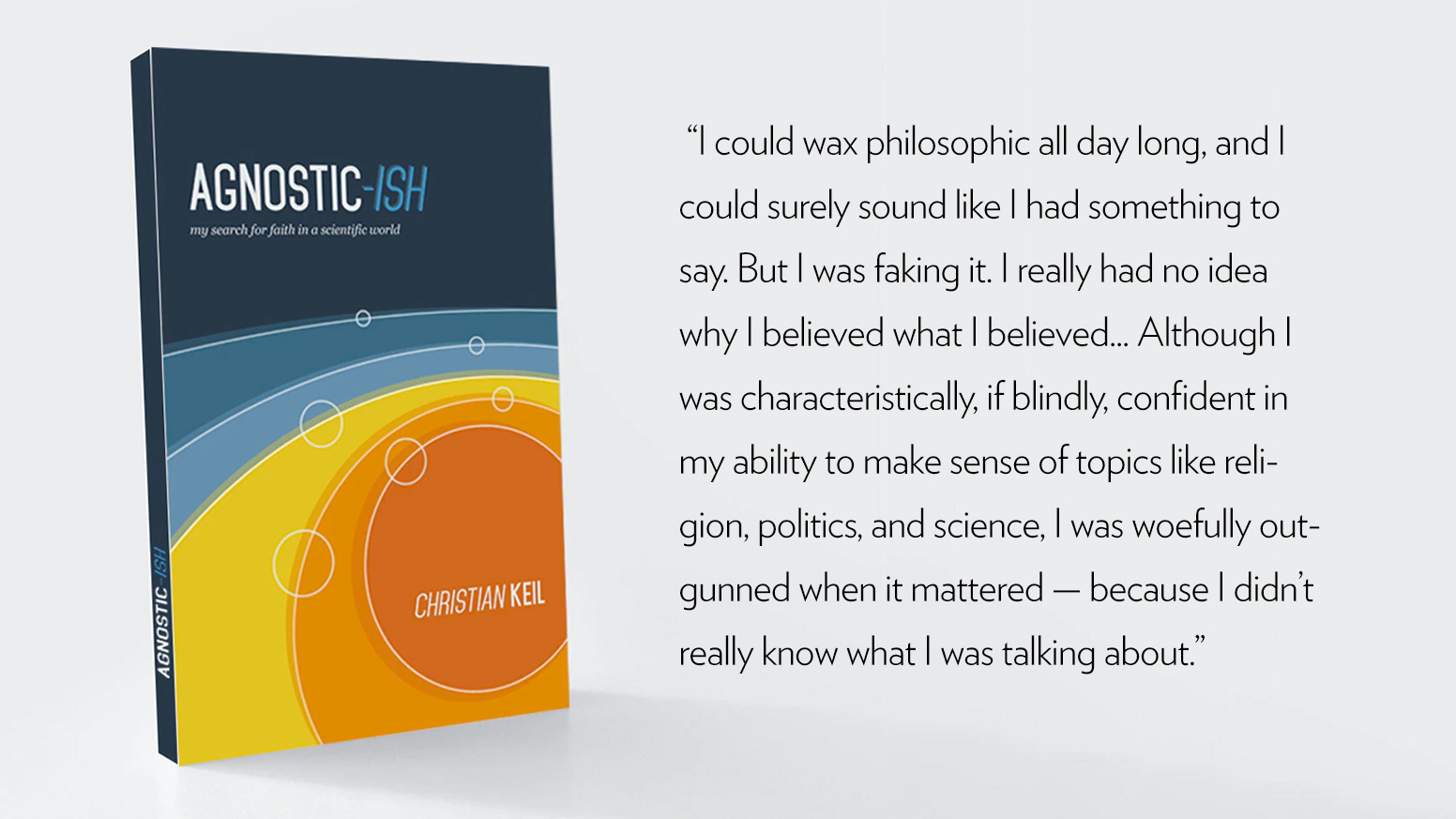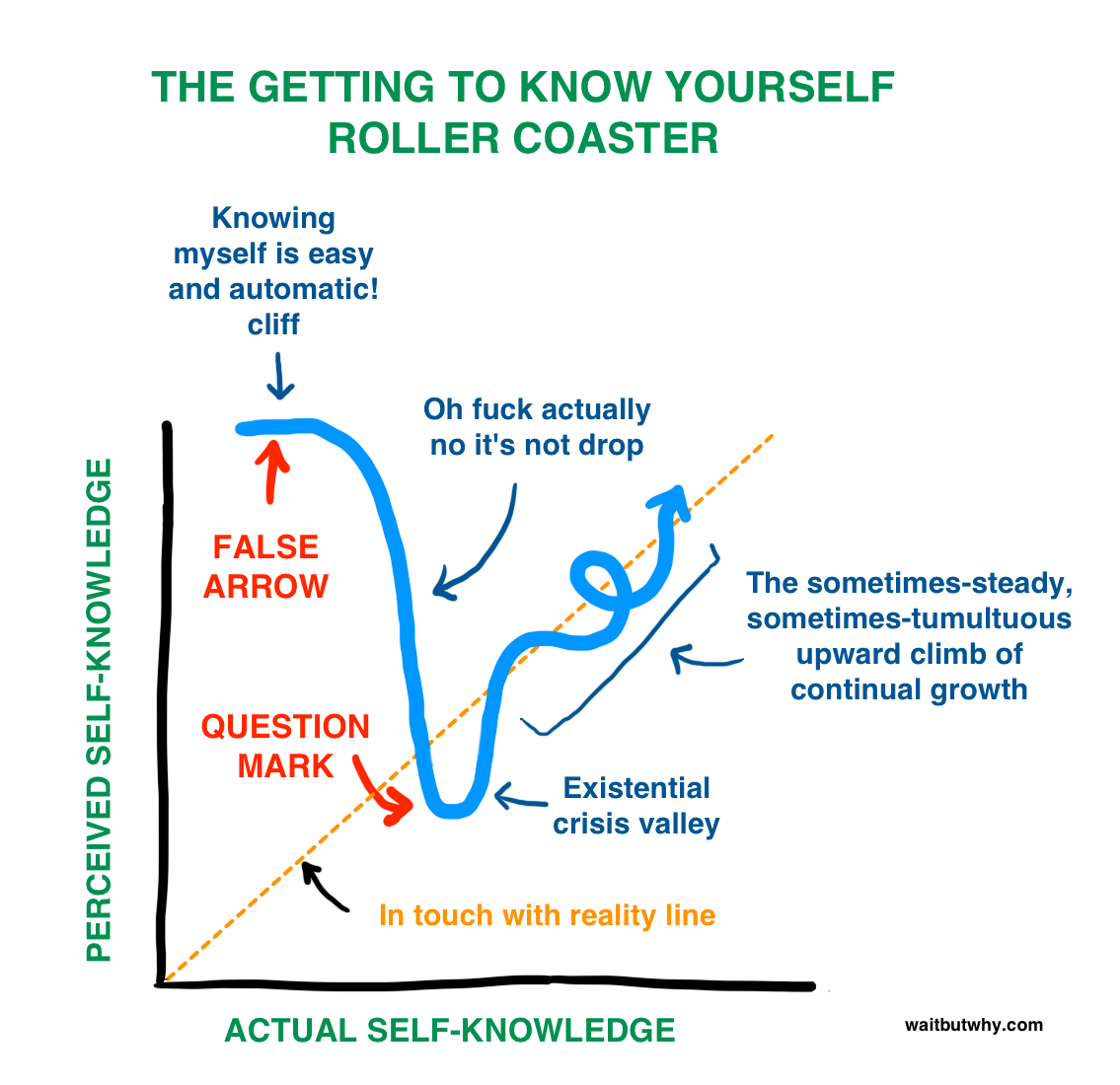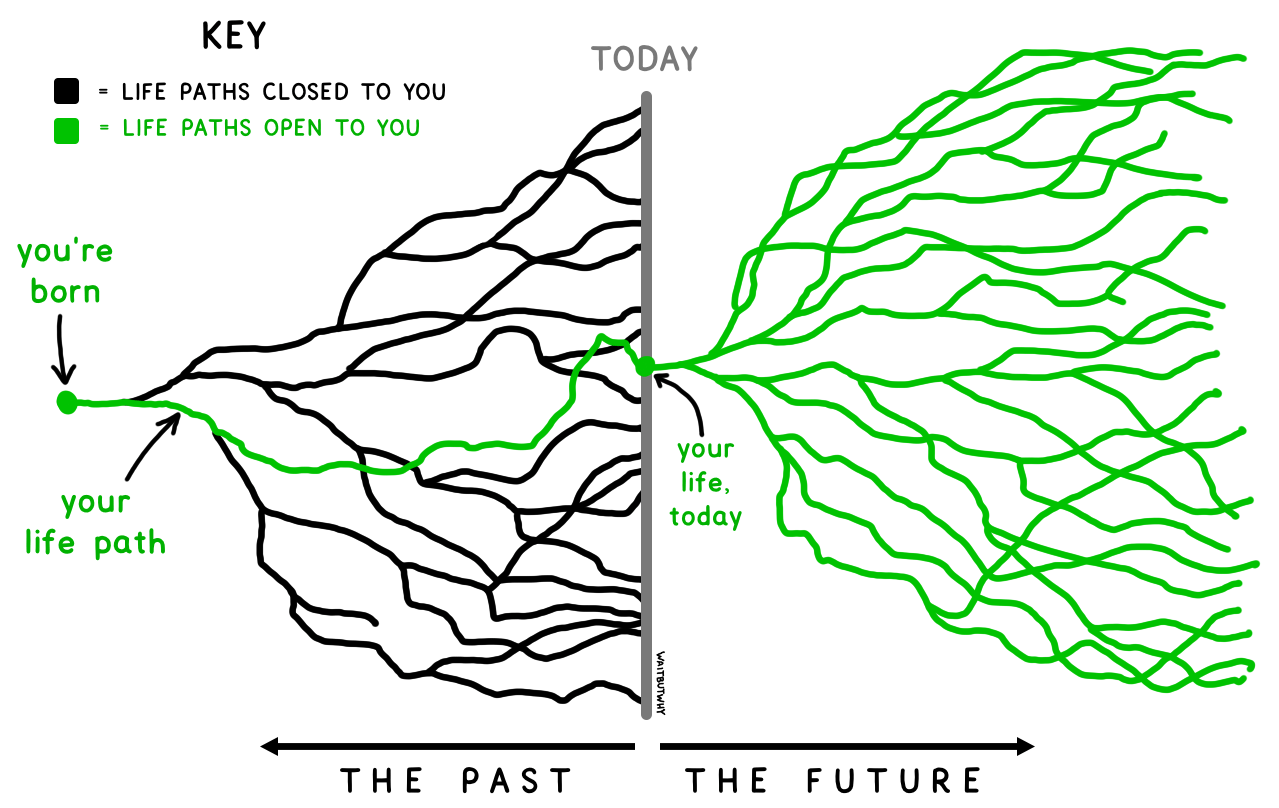Silicon Valley Outsider - An Outsider's Search For Meaning
I am a slow but diligent reader, and of the ~240 books I’ve read since I started tracking in 2014, just two have changed my life. The first is Dan Millman’s Way of the Peaceful Warrior. It’s not the best book I’ve ever read — it’s not even top 20 — but it hit me at a perfect time, and in a perfect way. The book’s protagonist is a frustrated striver, and I saw my 23-year-old self in him. I often recommend it to young, ambitious people; it is profound and practical, and it helped me chill out a little. The second book that changed my life is the the subject of today’s post: Man’s Search for Meaning, by Viktor Frankl. I just finished reading it this week, and I loved it so much that I’ll buy you a copy. (Seriously. Just reply to this email and tell me where to send it… get it while supplies last!) This might strike you as a strange choice for this newsletter, but given the thesis of the book — that “the meaning of life” is nothing more or less than the process of you finding meaning in your own life — it struck me as germane. The rest of this post talks about my personal search for meaning, and why I made the choices that led me to a life in Silicon Valley.I’m not sure that my path through life is particularly admirable, repeatable, or even advisable, but I hope that is can show you how it’s possible to find meaning through a career change into the startup world. Searching for meaning through oppositionI grew up as a skeptical kid: I wasn’t sure what I wanted or who I was, but I never had trouble finding faults my surroundings in the Minneapolis suburbs. One of my first (mostly unknowing) decisions was to choose not to invest in the social scene of my hometown. I found very little community in Lakeville, Minnesota — I was more compelled to connect with my debate friends who lived all over the country (and even with my internet friends) than with the kids in my high school. I also decided early on that I didn’t want to follow in the religious footsteps of my parents. I wrote about this at length in Agnostic-ish, where I admitted that this rejection of faith wasn’t all that admirable: My early quest for meaning was more immature than principled. I cared about my beliefs being correct, and I wanted to live in a broader world than Lakeville South High School had to offer. But my response ended up being precisely the opposite of what Frankl suggests in “Man’s Search for Meaning.” He wrote:
I didn’t accept what responsibilities life had given me; I rejected them. And as I would soon find out, that strategy was unsustainable. Searching for meaning through sufferingI had a quarter-life crisis when I was about 23 years old. After landing a prestigious, well-paying job in consulting, I realized that I had no idea what I wanted to do with my life. I felt like I had just woken up from sleepwalking: dazed, confused, and listless. Tim Urban, author of one of the best blogs of all time, Wait But Why, explained this feeling as only he can: My response to the “oh f*ck” freefall was to become a crazy person in the opposite direction, and to find meaning by creating a bucket list and desperately, furiously, maniacally trying to cross items off of it. I thought that I wanted to be a writer, so I wrote a book. I thought that I wanted to be an athlete, so I trained for and ran a marathon. I thought that I wanted to live internationally, so I tried (and mostly failed) to learn Spanish with an intense Duolingo regime. And this was all in one calendar year, while working on some high-burn projects in consulting. It was wild. It felt noble at the time — as Frankl wrote, “…suffering may well be a human achievement, especially if the suffering grows out of existential frustration.” But Frankl also wrote that “unnecessary suffering is masochistic rather than heroic,” and my suffering in pursuit of my goals was self-imposed, just a coping mechanism to fill the void of purpose and meaning in my life. It may have looked much better from the outside, but I felt just as empty: no amount of achievement could make up for my lack of self-knowledge. Finding meaning in self-knowledgeAs I matured in my mid- and late-twenties, I became progressively less manic in my desire to make something of my life as I became progressively more aware of who I was and what the world around me had to offer. Most notably for this newsletter, I learned a lot about what I want in a career. As I summarized in “don’t be afraid of working at a startup,”
Consulting wasn’t living up to those three standards, at least by my calculations. If the world’s consulting companies disappeared tomorrow, big enterprises might make less money next year, but everything would mostly be okay. Similarly, if I had disappeared from 2013-2017, my consulting firm probably would have been just fine. The last point, however, was the crucial one that led to my departure from consulting: the lack of incentive alignment. I found that success at a big company depended equally on doing great work and telling people how great your work was; I wanted to do effectively none of the latter, so I sought out a career that was less political. And, to skip a few steps of trial and error, I found that the startup world fulfilled all of my criteria and then some: Working in the startup world has given me a chance to pursue meaning in my career.I’m not raging against anything at Astranis, I’m working towards an epic goal of getting the world online. My personal work matters; my company’s work matters; and my effort has been rewarded (both internally and externally). Although success in this world is challenging to achieve and, at times, painful, the pain of startup life is categorically different from the struggling-against that I felt in my early life, and my quarter-life crisis angst. Frankl again has wise words to offer:
Working towards a really, really challenging goal that I freely chose to pursue is precisely what I love about Astranis and the startup world. It gives me meaning in my career, and in my life — meaning it’s exactly what I hoped to during my days as a disgruntled consultant. What I have still yet to learnMy fiancée often reminds me that I am still a work in progress, and I don’t want this post to sound either preachy or conclusive. I am still in the middle of my story, and am actively learning every day — hence why I expect Viktor Frankl’s book to change my life. This graphic, also from Tim Urban, explains it well: This post has focused on the left side of the graphic for me, and I like the current path that I’m on. But there are still so many more decisions to be made! (Related: it’s a shame that most autobiographies are written by folks only after they have succeeded. Watching a highlight reel is way less existing than hearing from someone actively in the arena.) If you, like me, feel like you want more from life — and particularly if you feel like moving to the startup world might be part of the answer — I’d strongly encourage you to read “Man’s Search for Meaning.” It might just help you navigate the many paths available to you in a way that is true to who you are. If you do give it a read, you can help keep me honest. Even in the previous section, where I claimed to have figured some things out, I still sounds like classic me: striving for control; taking ownership of my life; remaining self-centered. I still have yet to internalize Frankl’s point that the way to self-actualization is through self-transcendence:
I don’t (yet) know how to reconcile that with his advice to find meaning by struggling towards a worthwhile goal, but I do know that I have a lot more to learn about myself and the world around me. And if I can remember that much, I think I’ll end up just fine. Thanks for reading Silicon Valley Outsider! Here are a few past editions that you might like if you enjoyed this one: If you want to join 470 folks in getting an email from me each Monday, I’ll help you understand Silicon Valley using normal-human words. (And, apparently, understand the meaning of life.) If you liked this post from Silicon Valley Outsider, why not share it? |
Older messages
Silicon Valley Lore
Monday, July 19, 2021
The stories behind the catchphrases that you're "supposed to know"
Should I have shut down my startup?
Monday, July 12, 2021
Someone else is executing on my idea... I might have been very wrong
Startup resources, and how to work hard
Tuesday, July 6, 2021
Two retweets this week: Lea Boreland and Paul Graham
The most important skill in Startup Land: Drive
Monday, June 28, 2021
Operator Skill Tree: Edition #1
Are Midwestern values incompatible with startup success?
Saturday, June 26, 2021
For most people, but obviously not for all — let me explain.
You Might Also Like
[CEI] Chrome Extension Ideas #180
Tuesday, March 4, 2025
ideas for Figma, GitHub, Job Applicants, and stud ͏ ͏ ͏ ͏ ͏ ͏ ͏ ͏ ͏ ͏ ͏ ͏ ͏ ͏ ͏ ͏ ͏ ͏ ͏ ͏ ͏ ͏ ͏ ͏ ͏ ͏ ͏ ͏ ͏ ͏ ͏ ͏ ͏ ͏ ͏ ͏ ͏ ͏ ͏ ͏ ͏ ͏ ͏ ͏ ͏ ͏ ͏ ͏ ͏ ͏ ͏ ͏ ͏ ͏ ͏ ͏ ͏ ͏ ͏ ͏ ͏ ͏ ͏ ͏ ͏ ͏ ͏ ͏ ͏ ͏ ͏ ͏ ͏ ͏ ͏ ͏
500k subs & 7 figs in revenue
Tuesday, March 4, 2025
This founder was still in college when he sold the business ͏ ͏ ͏ ͏ ͏ ͏ ͏ ͏ ͏ ͏ ͏ ͏ ͏ ͏ ͏ ͏ ͏ ͏ ͏ ͏ ͏ ͏ ͏ ͏ ͏ ͏ ͏ ͏ ͏ ͏ ͏ ͏ ͏ ͏ ͏ ͏ ͏ ͏ ͏ ͏ ͏ ͏ ͏ ͏ ͏ ͏ ͏ ͏ ͏ ͏ ͏ ͏ ͏ ͏ ͏ ͏ ͏ ͏ ͏ ͏ ͏ ͏ ͏ ͏ ͏ ͏ ͏ ͏ ͏ ͏ ͏
1,000,000
Tuesday, March 4, 2025
Taking a moment to celebrate and reflect—and then back to work ͏ ͏ ͏ ͏ ͏ ͏ ͏ ͏ ͏ ͏ ͏ ͏ ͏ ͏ ͏ ͏ ͏ ͏ ͏ ͏ ͏ ͏ ͏ ͏ ͏ ͏ ͏ ͏ ͏ ͏ ͏ ͏ ͏ ͏ ͏ ͏ ͏ ͏ ͏ ͏ ͏ ͏ ͏ ͏ ͏ ͏ ͏ ͏ ͏ ͏ ͏ ͏ ͏ ͏ ͏ ͏ ͏ ͏ ͏ ͏ ͏ ͏ ͏ ͏ ͏ ͏ ͏ ͏ ͏
BSSA #116 - Outsourcing to scale 🚀
Tuesday, March 4, 2025
March 04, 2025 | Read Online Hello everyone! The Wide Event is almost sold out. More than 90% of the tickets have been booked. If you're one of the people waiting until the last minute to purchase,
🔥 The secret factories big brands don’t want you to know 👗👖
Tuesday, March 4, 2025
The best fashion suppliers don't advertise—here's how to find them. Hey Friend , If you've ever struggled to find high-quality fashion manufacturers, there's a reason: The best
Making Wayves
Tuesday, March 4, 2025
+ Girls just wanna have funding; e-bike turf war View in browser Powered by ViennaUP Author-Martin by Martin Coulter Good morning there, Since 2021, VC firm Future Planet Capital (FPC) has secured more
Animal Shine And Doctor Stein 🐇
Monday, March 3, 2025
And another non-unique app͏ ͏ ͏ ͏ ͏ ͏ ͏ ͏ ͏ ͏ ͏ ͏ ͏ ͏ ͏ ͏ ͏ ͏ ͏ ͏ ͏ ͏ ͏ ͏ ͏ ͏ ͏ ͏ ͏ ͏ ͏ ͏ ͏ ͏ ͏ ͏ ͏ ͏ ͏ ͏ ͏ ͏ ͏ ͏ ͏ ͏ ͏ ͏ ͏ ͏ ͏ ͏ ͏ ͏ ͏ ͏ ͏ ͏
upcoming analyst-led events
Monday, March 3, 2025
the future of the customer journey, tech M&A predictions, and the industrial AI arms race. CB-Insights-Logo-light copy Upcoming analyst-led webinars Highlights: The future of the customer journey,
last call...
Monday, March 3, 2025
are you ready? ͏ ͏ ͏ ͏ ͏ ͏ ͏ ͏ ͏ ͏ ͏ ͏ ͏ ͏ ͏ ͏ ͏ ͏ ͏ ͏ ͏ ͏ ͏ ͏ ͏ ͏ ͏ ͏ ͏ ͏ ͏ ͏ ͏ ͏ ͏ ͏ ͏ ͏ ͏ ͏ ͏ ͏ ͏ ͏ ͏ ͏ ͏ ͏ ͏ ͏ ͏ ͏ ͏ ͏ ͏ ͏ ͏ ͏ ͏ ͏ ͏ ͏ ͏ ͏ ͏ ͏ ͏ ͏ ͏ ͏ ͏ ͏ ͏ ͏ ͏ ͏ ͏ ͏ ͏ ͏ ͏ ͏ ͏ ͏ ͏ ͏ ͏ ͏ ͏ ͏ ͏ ͏ ͏
🦄 Dimmable window technology
Monday, March 3, 2025
Miru is creating windows that uniformly tint—usable in cars, homes, and more.






